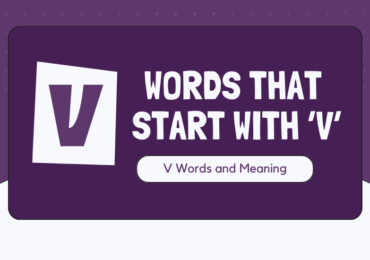The past tense is a verb tense used for a past activity or a past state of being. For example.
Ex : I jumped in the well (This is a past activity), I was sad (This is a past state of being)
గతంలో జరిగిన చర్యను లేదా అంతకుముందు ఉన్న స్థితిని వ్యక్తపరిచే కాలంను Past Tense అంటారు. తెలుగులో దీన్ని భూత కాలం అంటారు. భూత కాలంలో వివిధ సమయ అంశాల యందు జరిగే పనుల ఆధారంగా Past Tense నీ తిరిగి నాలుగు కాలాలుగా విభజించారు. అవి..
1. Simple Past Tense
The simple past is a verb tense that is used to talk about things that happened or existed before now.
గతంలో లేదా ఇంతక ముందు జరిగిన పనులను లేదా స్థితిని తెలియజేసే సంధర్భంలో Simple Past Tense ఉపయోగిస్తాము. అంటే నిన్న ఏం జరిగింది, గత నెలలో ఏం జరిగింది, ఏడాది క్రితం ఎలా ఉండేది. సాయంత్రం ఎక్కడ ఉన్నాము వంటి మాటలు మాట్లాడేటప్పుడు ఈ tense ని ఉపయోగించాలి. దీన్నే past indefinite tense అనికూడా అంటారు. Simple Past Tense వాక్య నిర్మాణం చాలా సరళంగా ఉంటుంది. ఇందులో సబ్జెక్టు + V2 (Past Simple) + ఆబ్జెక్ట్ మాత్రమే ఉంటాయి.
Simple past tense లో ఉపయోగించే Time Words : Yesterday, years, weeks, months, days, hours ago, in (past year); last (month, week, year)
Simple Past Tense formula
Positive Sentence
Simple Past Tense వాక్య నిర్మాణంలో సబ్జెక్టు + V2 (Simple Past) + ఆబ్జెక్ట్ ఉంటాయి. ఆబ్జెక్ట్ తర్వాత పని జరిగిన Time Word (adverb of time) చెప్పాల్సి ఉంటుంది. సబ్జెక్టు ఏదైనా ప్రధాన క్రియకు ముందు ఎటువంటి సహాయక క్రియను ఈ Tense లో ఉపయోగించాల్సిన అవసరం ఉండదు. V2 క్రియా రూపాన్ని కేవలం Simple Past Tense లో మాత్రమే ఉపయోగిస్తాం.
| Positive Forms (+) | Subject ( I, he, she ) + V2 (Simple Past) + Object + (adverb of time) |
| Subject ( you, we, they ) + V2 (Simple Past) + Object + (adverb of time) |
Examples :
|
|
Negitive Sentence
Simple Past Tense లో Negitive వాక్యం నిర్మించేటప్పుడు, సబ్జెక్టు తర్వాత లేదా ప్రధాన క్రియ V2 (Simple Past) కు ముందు " did not (didn't) " ఉపయోగించాలి.
| Negitive Forms (-) | Subject ( I, he, she ) + did + Not + V1 + Object |
| Subject ( you, we, they ) + did + Not + V1 + Object |
Examples :
|
|
Question Sentence
Simple Past Tense లో ప్రశ్నలు సంధించడం చాల సులువైన పని. Simple Past Tense వాక్య నిర్మాణంలో ఉండే సబ్జెక్టు ముందు "Did" చేర్చడం ద్వారా Simple Past Tense question sentence ఏర్పడుతుంది.
| Question Forms (?) | Did + Subject ( I, he, she ) + V1 + Object |
| Did + Subject ( you, we, they ) + V1 + Object |
Examples :
|
|
Short Answer Sentence
Simple Past Tense లో ప్రశ్నలు సంధించేటప్పుడు.వాటికీ సంబంధించిన జవాబుల వాక్య నిర్మాణం ఇప్పుడు చూద్దాం. ఈ ప్రశ్నలకు తిరిగి ఇచ్చే జవాబుల్లో సబ్జెక్టు ముందు "Yes / No" మాటలను ఉపయోగించాలి. ప్రశ్నకు పాజిటివ్ సమాధానం చెప్పాల్సి వస్తే సబ్జెక్టు ముందు "Yes" అనే మాట చేర్చుతూ V1 ముందు did చేర్చాల్సి ఉంటుంది. అదే నెగిటివ్ సమాధానం చెప్పాల్సి వస్తే సబ్జెక్టు ముందు "No" అని చేర్చుతూ, V1 కు ముందు "Did Not" నీ ఉపయోగించాలి. లేదా క్లుప్తంగా Yes / No లేదా Yes, i did లేదా No, Didn't అని కూడా చెప్పొచ్చు.
| Short Answer Forms (-/+) | YES + Subject + Did + V1 + Object |
| NO + Subject + Didn't + V1 + Object |
Examples :
|
|
2.Past Continuous Tense
The past continuous tense, also known as the past progressive tense, refers to a continuing action or state that was happening at some point in the past. The past continuous tense is formed by combining the past tense of to be (i.e., was/were) with the verb's present participle (-ing word).
గతంలో ఒక నిర్దిష్ట సమయంలో జరుగుతున్న పనులను లేదా స్థితిని తెలియజేసే సంధర్భంలో Past continuous tense ఉపయోగిస్తాము. Past Continuous Tense వాక్య నిర్మాణంలో సబ్జెక్టు + was / were + V1 + Ing (Past Simple) + ఆబ్జెక్ట్ మాత్రమే ఉంటాయి.
Past continuous tense లో ఉపయోగించే Time Words : Yesterday, years, weeks, months, days, hours ago, in (past year); last (month, week, year)
Past Continuous Tense formula
Positive Sentence
Past Continuous Tense వాక్య నిర్మాణంలో సబ్జెక్టు + Was / Were + V1 + Ing (Simple Present) + ఆబ్జెక్ట్ ఉంటాయి. ఆబ్జెక్ట్ తర్వాత పని జరిగిన Time Word (adverb of time) చెప్పాల్సి ఉంటుంది. సబ్జెక్టు ఏకవచనంలో ఉన్నప్పుడు, ప్రధాన క్రియాకు ముందు past tense verb form "Was" ఉపయోగించాలి. అదే సబ్జెక్టు బహు వచనంలో ఉంటె "Were" ఉపయోగించాలి.
| Positive Forms (+) | Subject ( I, he, she ) + Was + V1 +Ing (Simple present + ing) + Object + (adverb of time) |
| Subject ( you, we, they ) + Were + V1 +Ing (Simple present + ing) + Object + (adverb of time) |
Examples :
|
|
Negitive Sentence
Past Continuous Tense లో Negitive వాక్యం నిర్మించేటప్పుడు, Was / Were తర్వాత లేదా ప్రధాన క్రియ V1 + ing కు ముందు "Not" ఉపయోగించాలి.
| Negitive Forms (-) | Subject ( I, he, she ) + Was + Not + V1 + Ing + Object |
| Subject ( you, we, they ) + Were + Not + V1 + Ing + Object |
Examples :
|
|
Question Sentence
Past Continuous Tense లో ప్రశ్నలు సంధించడం చాల సులువైన పని. Past Continuous Tense వాక్య నిర్మాణంలో ఉండే సబ్జెక్టు ముందు "Was / Were" చేర్చడం ద్వారా Past Continuous Tense question sentence ఏర్పడుతుంది.
| Question Forms (?) | Was + Subject ( I, he, she ) + V1 + Ing + Object |
| Were + Subject ( you, we, they ) + V1 + Ing + Object |
Examples :
|
|
Short Answer Sentence
Past Continuous Tense లో ప్రశ్నలు సంధించేటప్పుడు.వాటికీ సంబంధించిన జవాబుల వాక్య నిర్మాణం ఇప్పుడు చూద్దాం. ఈ ప్రశ్నలకు తిరిగి ఇచ్చే జవాబుల్లో సబ్జెక్టు ముందు "Yes / No" మాటలను ఉపయోగించాలి. ప్రశ్నకు పాజిటివ్ సమాధానం చెప్పాల్సి వస్తే సబ్జెక్టు ముందు "Yes" అనే మాట చేర్చితే సరిపోతుంది. మిగతా వాక్యంలో ఎటువంటి మార్పు చేయాల్సిన అవసరం లేదు. అదే నెగిటివ్ సమాధానం చెప్పాల్సి వస్తే సబ్జెక్టు ముందు "No" అని చేర్చుతూ, V1 + ing కు ముందు లేదా Was / Were తర్వాత " Not" నీ ఉపయోగించాలి. లేదా క్లుప్తంగా Yes / No లేదా Yes, i was/were లేదా No, wasn't / weren't అని కూడా చెప్పొచ్చు.
| Short Answer Forms (-/+) | YES + Subject + Was /Were + V1 + Ing + Object |
| NO + Subject + Wasn't / Weren't + V1 + Ing + Object |
Examples :
|
|
3. Past Perfect Tense
The Past Perfect tense expresses action in the past before another action in the past. This is the past in the past.
గతంలో పూర్తిఅయినా రెండు పనులను, ఒకే వాక్యంలో తెలియజేసే సంధర్భంలో Past perfect tense ఉపయోగిస్తాము. ఉదాహరణకు "నేను పరీక్షల ముందు విహార యాత్రకు వెళ్ళాను." "నేను పార్టీ వెళ్లే ముందు రమేష్ ను కలిశాను". "ఈయన ఈ పార్టీలో చేరే ముందు మరో పార్టీలో పని చేసారు." లాంటి విషయాలు సంభాషించే సమయంలో ఈ tense ఉపయోగిస్తారు. Past perfect tense వాక్య నిర్మాణంలో సబ్జెక్టు + Had + V3 (past participle) + ఆబ్జెక్ట్ మాత్రమే ఉంటాయి.
Past perfect tense లో ఉపయోగించే Time Words : before, after, yet, already, just, by, by the time, when, for.
Past perfect Tense formula
Positive Sentence
Past perfect tense వాక్య నిర్మాణంలో సబ్జెక్టు + Had + V3 (past participle) + ఆబ్జెక్ట్ ఉంటాయి. మీకు ముందు చెప్పనట్లు, Perfect tense మీకు ఎక్కడ కనిపించినా..అక్కడ క్రియా రూపం V3 (past participle) ఉంటుంది.
| Positive Forms (+) | Subject ( I, he, she ) + Had + V3 (past participle) + Object |
| Subject ( you, we, they ) + Had + V3 (past participle) + Object |
Examples :
|
|
Negitive Sentence
Past perfect tense లో Negitive వాక్యం నిర్మించేటప్పుడు, Had తర్వాత లేదా ప్రధాన క్రియ V3 కు ముందు "Not" చేర్చితే సరిపోతుంది.
| Negitive Forms (-) | Subject ( I, he, she ) + Had + Not + V3 + Object |
| Subject ( you, we, they ) + Had + Not + V3 + Object |
Examples :
|
|
Question Sentence
Past perfect tense లో ప్రశ్నలు సంధించడం చాల సులువైన పని. Past perfect tense వాక్య నిర్మాణంలో ఉండే సబ్జెక్టు ముందు "Had" చేర్చడం ద్వారా Past perfect tense question sentence ఏర్పడుతుంది.
| Question Forms (?) | Had + Subject ( I, he, she ) + V3 + Object |
| Had + Subject ( you, we, they ) + V3 + Object |
Examples :
|
|
Short Answer Sentence
Past perfect tense లో ప్రశ్నలు సంధించేటప్పుడు.వాటికీ సంబంధించిన జవాబుల వాక్య నిర్మాణం ఇప్పుడు చూద్దాం. ఈ ప్రశ్నలకు తిరిగి ఇచ్చే జవాబుల్లో సబ్జెక్టు ముందు "Yes / No" మాటలను ఉపయోగించాలి. ప్రశ్నకు పాజిటివ్ సమాధానం చెప్పాల్సి వస్తే సబ్జెక్టు ముందు "Yes" అనే మాట చేర్చితే సరిపోతుంది. మిగతా వాక్యంలో ఎటువంటి మార్పు చేయాల్సిన అవసరం లేదు. అదే నెగిటివ్ సమాధానం చెప్పాల్సి వస్తే సబ్జెక్టు ముందు "No" అని చేర్చుతూ, V3 ముందు లేదా Had తర్వాత " Not" నీ ఉపయోగించాలి. లేదా క్లుప్తంగా Yes / No లేదా Yes, I had లేదా No, Hadn't అని కూడా చెప్పొచ్చు.
| Short Answer Forms (-/+) | YES + Subject + Had + V3+ Object |
| NO + Subject + Hadn't + V3 + Object |
Examples :
|
|
4. Past Perfect Continuous Tense
The past perfect continuous tense (also known as the past perfect progressive tense) shows that an action that started in the past continued up until another time in the past.
గతంలో ఒక సమయాన ప్రారంభమైన ఒక ఆక్టివిటీ, గతంలోనే ఒకానొక కాలం వరకు కొనసాగి పూర్తి అయినప్పుడు Past Perfect Continuous Tense ఉపయోగిస్తాము. ఉదాహరణకు "మొదటి ప్రపంచ యుద్ధం 1914 లో మొదలయి, 1918 లో ముగిసింది". ఈ tense చారిత్రాత్మక విషయాలు లేదా గత అనుభవాలను పంచుకునే సమయంలో ఎక్కువ ఉపయోగపడుతుంది. Past Perfect Continuous Tense వాక్య నిర్మాణంలో సబ్జెక్టు + Had Been + V1 + Ing (present participle) + ఆబ్జెక్ట్ మాత్రమే ఉంటాయి.
Past Perfect Continuous Tense లో ఉపయోగించే Time Words : before, when, for. Scince.
Past Perfect Continuous Tense formula
Positive Sentence
Past Perfect Continuous Tense వాక్య నిర్మాణంలో సబ్జెక్టు + Had been + V1 + Ing (present participle)
| Positive Forms (+) | Subject ( I, he, she ) + Had + Been + V1 (present participle) + Object |
| Subject ( you, we, they ) + Had + Been + V1 (present participlee) + Object |
Examples :
|
Negitive Sentence
Past Perfect Continuous Tense లో Negitive వాక్యం నిర్మించేటప్పుడు, Had కి been కీ మధ్య "Not" చేర్చితే సరిపోతుంది.
| Negitive Forms (-) | Subject ( I, he, she ) + Had + Not + Been + V1 + Ing + Object |
| Subject ( you, we, they ) + Had + Not + Been + V1 + Ing + Object |
Examples :
|
Question Sentence
Past Perfect Continuous Tense లో ప్రశ్నలు సంధించడం చాల సులువైన పని. Past Perfect Continuous Tense వాక్య నిర్మాణంలో ఉండే సబ్జెక్టు ముందు "Had" చేర్చడం ద్వారా Past perfect tense question sentence ఏర్పడుతుంది. been ని సబ్జెక్టు తర్వాత యధాస్థితిలో ఉంచాల్సి ఉంటుంది.
| Question Forms (?) | Had + Subject ( I, he, she ) + Been + V1 + Ing + Object |
| Had + Subject ( you, we, they ) + been + V1 + Ing + Object |
Examples :
|
|
Short Answer Sentence
Past Perfect Continuous Tense లో ప్రశ్నలు సంధించేటప్పుడు.వాటికీ సంబంధించిన జవాబుల వాక్య నిర్మాణం ఇప్పుడు చూద్దాం. ఈ ప్రశ్నలకు తిరిగి ఇచ్చే జవాబుల్లో సబ్జెక్టు ముందు "Yes / No" మాటలను ఉపయోగించాలి. ప్రశ్నకు పాజిటివ్ సమాధానం చెప్పాల్సి వస్తే సబ్జెక్టు ముందు "Yes" అనే మాట చేర్చితే సరిపోతుంది. మిగతా వాక్యంలో ఎటువంటి మార్పు చేయాల్సిన అవసరం లేదు. అదే నెగిటివ్ సమాధానం చెప్పాల్సి వస్తే సబ్జెక్టు ముందు "No" అని చేర్చుతూ, V1 ముందు లేదా Had తర్వాత " Not" నీ ఉపయోగించాలి. అలానే Been ని యధాస్థితిలో కొనసాగించాలి. లేదా క్లుప్తంగా Yes / No లేదా Yes, I had లేదా No, Hadn't అని కూడా చెప్పొచ్చు.
| Short Answer Forms (-/+) | YES + Subject + Had Been + V1 + ing + Object |
| NO + Subject + Hadn't Been + V1 + Ing + Object |
Examples :
|
|









